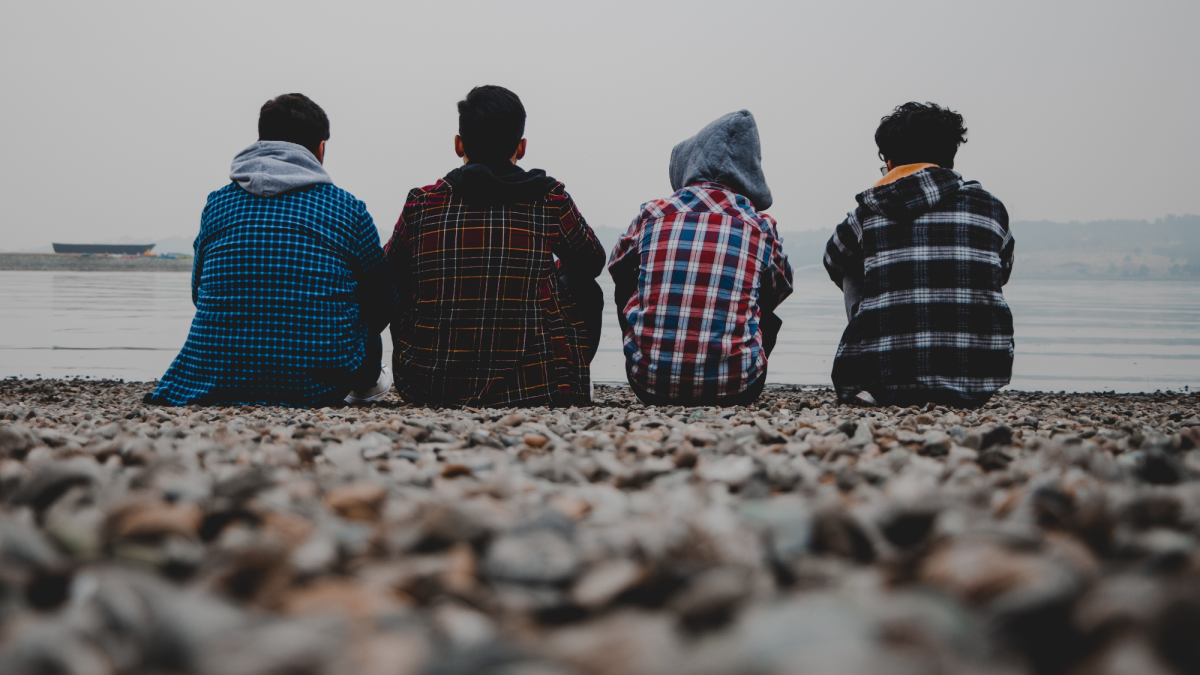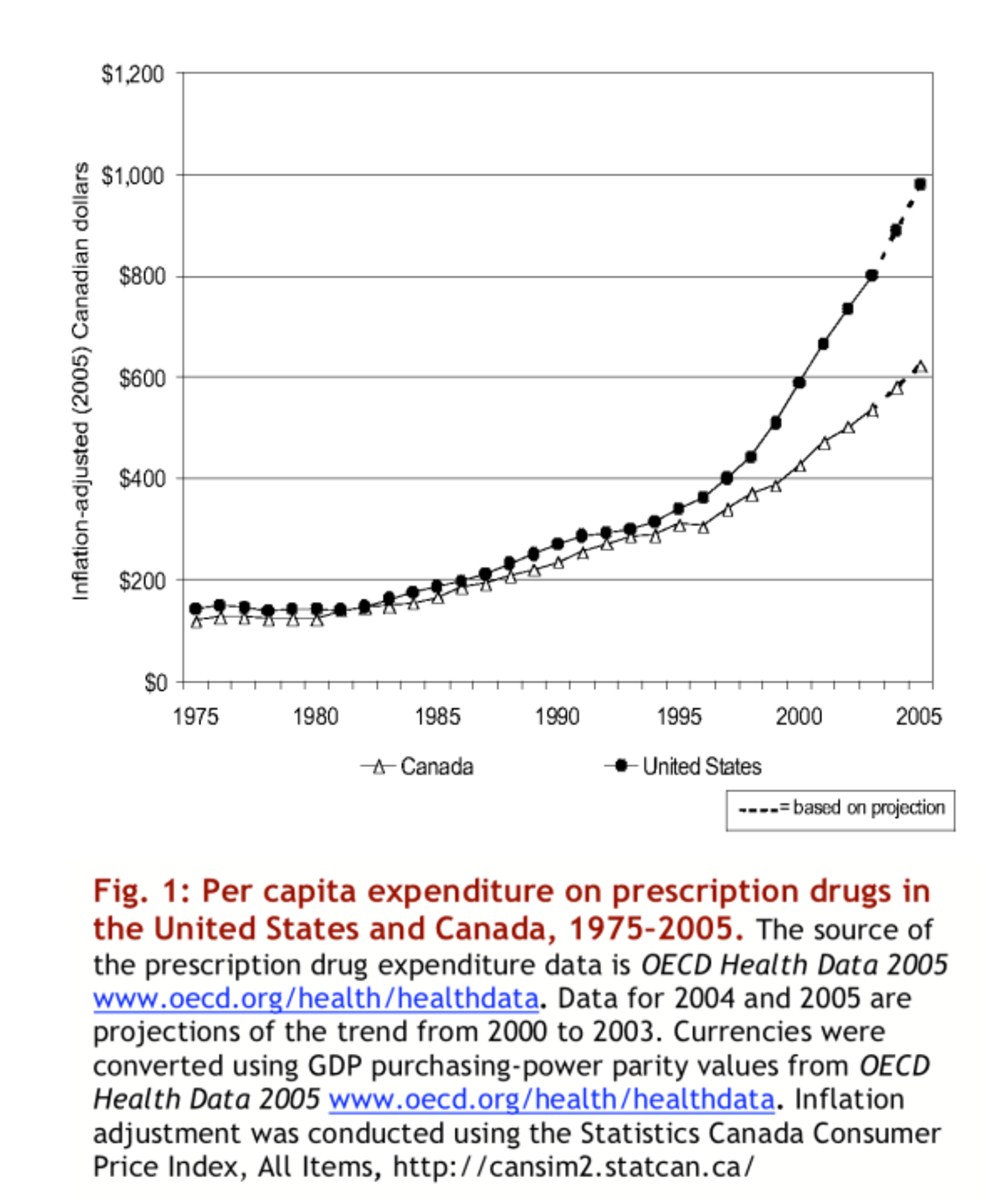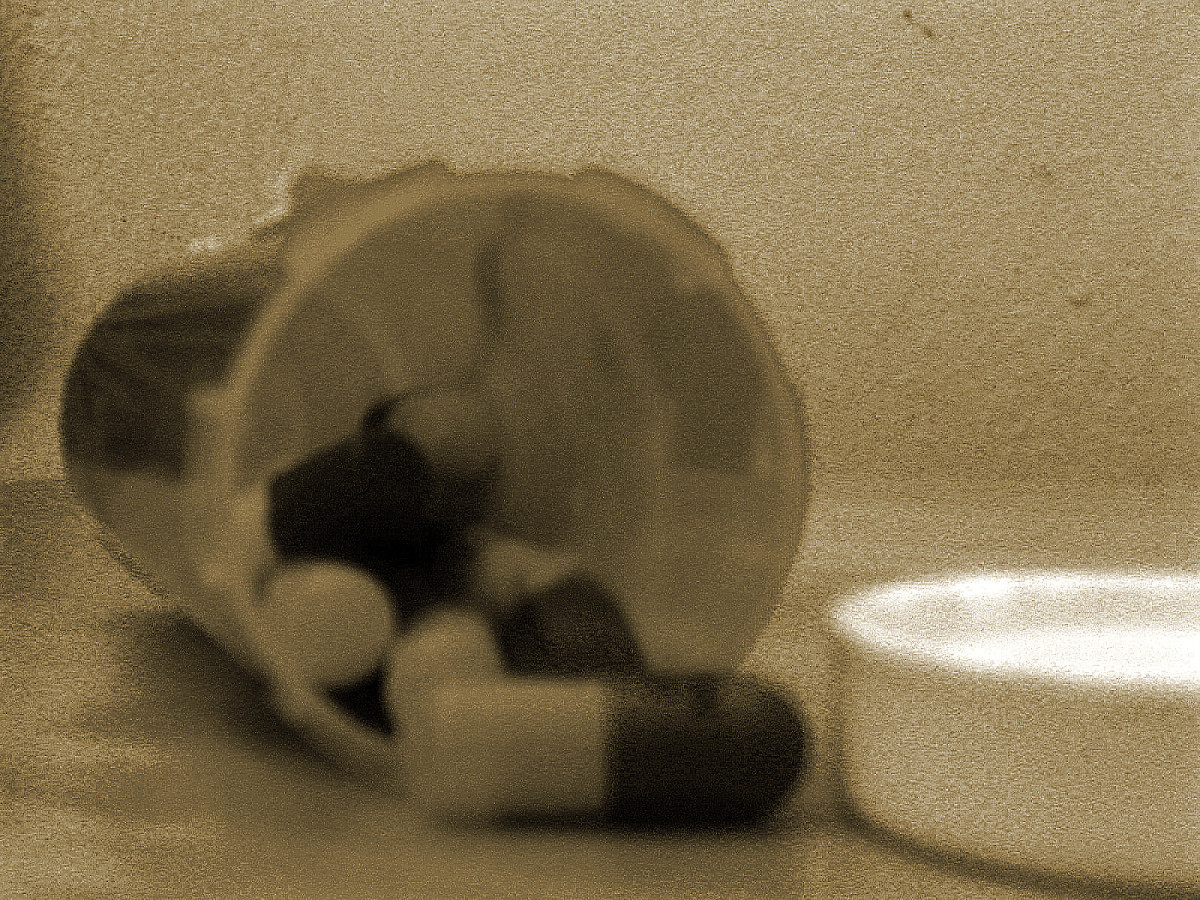Issues Facing Teenager's Today
Statistics of Teenage Drug Use
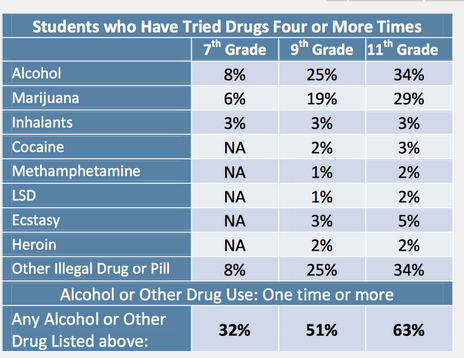
Reality of Teen Drug Abuse
Are you an informed parent of a teenager?
view quiz statisticsTop Issues Teenagers Face Today: DRUGS
- Drugs
- marijuana
- crystal meth
- cocaine
- heroin
- prescription narcotics
The initial experience of experimenting with an illegal drug is getting younger and younger. As of 2012 they are starting as young as the 8th grade on the harder drugs.
Marijuana is one of the drugs that kids even start years before 8th grade, in some cases. Kids are selling their parents medications straight from you medicine cabinets; which also means that kids are buying prescription medication.
The most common prescription medications being sold and/or bought by adolescents:
- Vicodin
- Valium
- Adderal
- Ritalin
- Oxycontin
- Alcohol (most common)
Adolescent controlled substance abuse; such as, Adderal and Ritalin are up 33%.
One in four teenagers are now abusing a prescription medication at least once in their lifetime. One in eight teenagers have specifically abused the stimulant medications used to treat Attention Deficit and Attention Deficit Hyperactivity Disorder (ADHD):
- Vyvance
- Concerta
- Adderal
- Ritalin
The correlation to the increase in controlled substance abuse to 33% is apathy of the parents. They are oblivious to the trend of abusing stimulant medications; as well as the buying and selling from each other’s parents medicine cabinet. There is a lack of accountability in monitoring the medication.
In a study measuring ADHD medications and the parents belief that the medication improved their child’s academic performance; they found 1/3 of parents believed in the effectiveness.
20% of teenagers that reported they have abused stimulant medications, did so before they reached the age of 14. Teenagers were asked if they believed that it was dangerous to use prescriptions prescribed to another individual; despite the reason. 33% of the sample stated they did not believe it was dangerous..
Steve Pasierb, (President and CEO) of ‘The Partnership’ at www.drug free.org, stated that abusing prescription medications at an early age, is more likely to struggle with substance abuse as an adult.
’Natural News’ reported that despite the increased risk of substance abuse and addiction later in life; no actions have been made by parents to address the issue.
27% of adolescents have a false belief that taking someone else's prescription medications is safer than taking illegal drugs. They also report that they had more fear of being caught using illegal narcotics; such as cocaine or marijuana, than they did being caught with prescription medication.
Parents are unaware that they could be making it easy for their child to abuse prescription medications at home. 42% of teenagers whi abuse pills, typically get them from their parents medicine cabinets/dressers and purses.
Teens and Sex
2. Sex and Teens in the 21st Century: According to radical parenting online there are five "messy" teenage sex and relationship issues that adults, professionals, educators and parents should be aware of.
- Date Rape - Date rape is common among teenage and college parties alike nationwide.
- Meeting a partner - Teenagers have the perception that if they want to date someone they will despite anyone's views. Parents need to set clear boundaries and explain expectations in dating behavior to their adolescents. This is also a good time to explain teenage dating violence and how to identify unhealthy relationships.
- "Restless Virgins" - Many teenagers today feel more pressure than in earlier generations to have sexual relations with other teenagers. They are in a hurry to lose their V-card and have sex for the first time under than ideal circumstances.
- Female Oral Sex - In my high school days in the mid to late 90s giving oral sex to a boy was a huge deal and many girls would only do it in a committed long term relationship. Now a days there is a trend that girls will give oral sex to boys often, aren't embarrassed, don't consider it sex, but are embarrassed to receive oral sex from the male. It sets up a precedent for females to please males and not be treated equally and can be a dangerous way of thinking for young women. Oral sex in general needs to be addressed as a whole as many teenagers are being diagnosed with oral chlamydia and weren't aware you can contract STD's in their mouth and throat.
- Masturbation - Masturbation is normal, common, and majority of teenagers are doing it and talking about it but parents have not talked with them about the act. It is a common and transcended generations of an awkward topic of conversation, more awkward than the birds and the bees and pollination.
#2 Top Issue in Adolescence: LGBT Sexuality
According to Purdue News, only 3% of medical professionals address LGBT issues with their adolescent patients. Research has identified a correlation between a physician’s discussing LGBT; and a higher percentage of teenagers that were willing to open up and ask questions. The more likely the doctor asked about sexuality; the higher the ratio of teenagers willing to discuss it.
Stewart Alexander, an associate professor of Consumer Science, focuses on health communication. The professor stated:
"Physicians are making their best efforts, but they are missing opportunities to create safe environments for teenagers to discuss sexuality and their health,"
Gay and Lesbian teenagers have an ability to typically be able to identify if their environment; or individuals who are engaging, is safe to open up to about sexuality. In an environment they can open up in, they are also more likely to explain their lifestyle choice. Setting the tone between doctor and patient is necessary. Communication is a very crucial step to creating comfort and security for the LGBT teenager. Teenagers with an alternative lifestyle is more likely to have no one they can open up and confide in.
LGBT teenagers have been found to be more negatively affected by sexual activity. They are more likely to contract a sexual transmitted infection. Those that identify as gay, lesbian or bisexual; actually, are more likely to get pregnant than a heterosexual female.
Sexual activity and Intercourse of a lesbian/gay female: resulting in a teen pregnancy, is most likely to have been coerced. It is more frequent among these youth.
Transgender‘s are four times more likely to contract HIV and highest rate of sexual violence, than heterosexuals.
Sexual orientation, gender identity, and related issues are found to not be reliably taught in sex education/health classes through the nation. When a school does include it in the curriculum, often the information is in a negative connotation and inaccurate.
In Alabama, any sex educator is required to teach the following ideals to their students:
“...homosexuality is not a lifestyle acceptable to the general public”
”...homosexual conduct is a criminal offense under the laws of the state.”
They are required to educate that moral ideal, instill the fear of the illegal aspect of their sexuality despite the ruling by the Supreme Court to be invalidated. They invalidated it ten years prior, but it hasn’t been changed.
Seven states in the United States currently prohibit the LGBT lifestyle to be portrayed in a positive manner throughout its education systems. As of 2012, no state had yet to mandate sexual education is required to include and discuss LGBT. As well as require that it should be approached in the same manner they approach the other sexual topics in the current curriculum.
In fact, only 4% of America's youth talked positively about the topic of an alternate lifestyle or the LGBT community. A female senior in high school stated:
“Because my school’s health program ignores the gay students, I have been pretty clueless about safe sex. I had to find information on my own on the Internet because non-straight students are ignored.”
The problem goes as far as to state a teacher's curricula,
"“Any same sex ‘sexual experimentation’ can be confusing to young persons and should be strongly discouraged.”
To further this point, some school's are told to "discourage" the lifestyle; as well as educate the students that being gay is "unnatural.” Even going further stating, “individuals that contracted HIV because they had “chosen” to be gay.”
Hostile school environments continue to hurt these youth; creating a barrier that prevents them from reaching their full academic potential. These students experience frequent harassment from peers, maintain lower grade point average's, have lower self-esteem, higher rates of depression, are four times more likely to attempt suicide, and more than half trans-gender adolescents do attempt suicide.
The "minority stress effect": LGBT kids use alcohol, tobacco, and drugs to relieve the stress they endure for their lifestyle, sexual orientation and identity. These behaviors further lead them to be stigmatized and discriminated against.
Teens and Sexual Issues in the 21st Century
- LGBT-Inclusive Sex Education Means Healthier Youth and Safer Schools - Center for American Progress
- A new generation of issues for LGBT clients
Practitioners are seeing a new cadre of psychological concerns in their work with lesbian, gay, bisexual and transgendered clients. - LGBT-Inclusive Sex Education Means Healthier Youth and Safer Schools - Center for American Progress
Real Education for Healthy Youth Act in both the Senate and the House of Representatives.
Jesseka Cladek
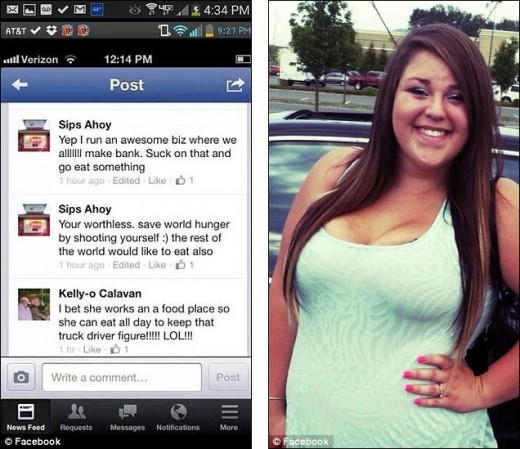
Teenage mental health
Teens and Suicide: 21st Century and the Suicide Increases due to Additional Stressors Teens Didn’t Have Before
3. Teen Suicide
In the 21st Century teenage suicide is the third leading cause of death. Males are more likely than females to commit suicide, however females are more likely than males to attempt suicide. Hispanic adolescents are most likely than any other ethnic/racial group to attempt suicide, but American Indian/Alaskan Natives are the most likely to actually commit suicide.
Basic Facts about Teen Suicide
- In 1996, more teenagers and young adults died of suicide than from cancer, heart disease, AIDS, birth defects, stroke, pneumonia and influenza, and chronic lung disease combined.
- In 1996, suicide was the second-leading cause of death among college students. It was the third-leading cause of death for 15 to 24 year olds. It is the fourth-leading cause of death among10 to 14 years old.
- From 1980 to 1996, the suicide rate amongst African-American males, 15 to 19 years old. saw a 105% increase in suicides.
The reasons for Suicide vary; but, there are many common reasons and situations where they decide to take their own life.
- major disappointment
- rejection by peers
- rejection by a significant other
- failure
- break-ups
- substance abuse
- difficulty coping with extreme stress
- unable to see their life turning around
- cyberbullying
Recently a new approach was taken and started looking at suicide from a biological standpoint. They examined if there is a genetic/DNA component linked to the probability of a teen committing or attempting suicide; and measures any correlation to determine results.
The correlational study developed the theory that a factor in determination of risk; was the probability of substance abuse running in the families. They also added a factor of determination of risk o and so does mental health illness and disorders such as depression.
Recent research has also delved into the examination of the brain's chemistry. In illness such as Bipolar or Depression, neurotransmitters are responsible for an imbalance of chemicals in the brain that aren't at their normal levels. Those that have attempted suicide had a correlation to low levels of the neurotransmitter/brain chemical, Serotonin.
Serotonin is responsible for controlling impulsive, the lower the levels of this chemical, the less an individual can control their impulsively. Suicide is seen as an impulsive action. Medication can control the levels which in turn controls depression, impulse control and thoughts of taking ones life.
Teen Violence on TalkBack4Teens
Background Studies Regarding Bullying Issue
- Extending the School Grounds
Study done in 2008 examining the bullying inside and outside the school environment and correlational information provided to help evaluate the extent of the bullying children are experiencing in the 21st technological advancement age
Cyberbullying
When technology started taking off studies such as this one were being conducted and published and have contined in this trend. There have been many issues surrounding the bullying issue in today's youth and one is if there is actually a greater problem than when these adolescents parents were in their same grades at their same ages.
Jaana Juvonen, Professor (j_juvonen@yahoo.com), Department of Psychology, University of California, Los Angeles, Hilgard Ave, Los Angeles, CA 90095. is the author of a study done regarding bullying made available by UCLA Children’s Digital Media Center and a UCLA Research Mentorship Fellowship to the second author. It was first published in 2008 and the purpose of the study was to examine the overlapping and targets of bullying that were now extending beyond school into the rest of a student's life with the growing technological advances available to youth. The study targeted adolescent's that were users of the Internet. The study further evaluated the assumptions of bullying and cyberbullying.
It tested 1044 adolescent youths in a web based survey, ages ranged from 12-years-old through the age of 17. In the course of the year 72% of the respondants reported at least one bullying online incident. Of the 72% that reported one case of bullying online, 85% of those adolescents experienced bullying inside their school institutions in addition to online bullying outside.
Of the one cases or more reported, the most frequent form of online bullying was in the form of name calling and insulting the intended target. In this study, 2008, the most common form was via instant messenger. Instant messenger could include but isn't limited to AIM or Yahoo IM. They access instant messenger on a personal laptop or home based PC and would receive IM's that were of this nature. When they used a controlled Internet group the increase in school bullying, increased the outside online bullying.
Of those bullied in these forms, they found that 2/3rds of the victims knew their bully personally. They knew their identity that is. Of the 2/3rds that knew their tormentor, half of them were actually in attendence in the child's own school.
The victims of both forms of bullying reported heightened social anxiety.
Of all those that reported that they had been bullied, nearly all of them at 90% reported on the survey they did not tell any trusted adult at home or school about the bullying behavior.
Is there a generation gap problem today that never existed before? Is this gap making the issue of bullying worse?
According to the Herald Sun, it was reported a judge stated that today's legal system is ill-equipped to handle today's bullyin; that is the form of cyber-bullying. Over the years this has been shown in cases where Teenage Suicide due to cyberbullying surfaced. The most notable that hit the news that brought light to the actual problem that the judge stated in that article is the case of the teenager Megan Meir.
The judge is in the New Zealand Judicial Youth Court System and was quoted to say the following that really brings to light a commonly debated topic of if the bullying issue is really as big a problem as they make it out to be, after all we survived it as kids why can't our kids right? Wrong. The judge further admitted that he had been ignorant and unaware to the extent the problem really was.
"We have all been teenagers and have all witnessed bullying," he said.
"But growing up with different technology means many in the justice system have not been directly exposed to the pernicious nature of cyber bullying, and its potential to be spread worldwide.
"Technology is changing all the time and at a rate faster than our legislative capacity has kept up with."
g.
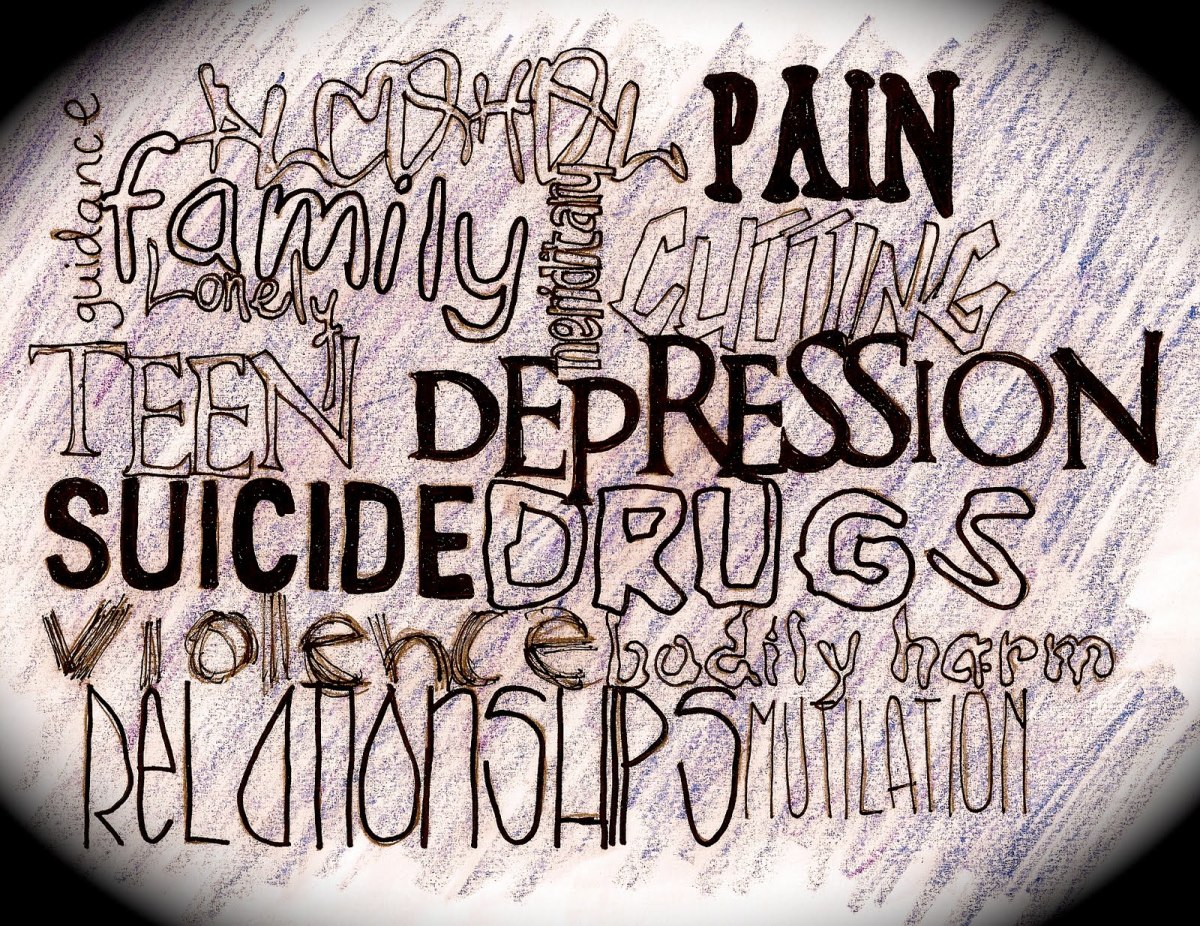
Screening Quizes for Top Teen Issues
- Teen Depression Screening Quiz
A depression screening quiz to see if your kids or teenager is depressed. - Bully Screening Quiz
A screening quiz to see if your child has any signs that he is a bully.
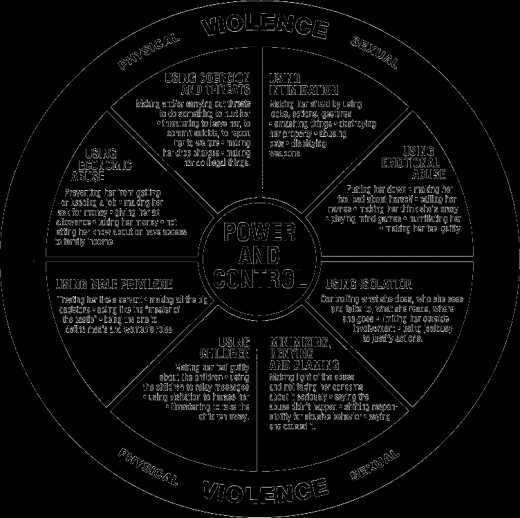
Help for Teens
- Troubled Teen Consultants - Help with programs and schools for troubled teens.
Troubled Teen Consultants provides parents with programs, articles, self help, and literature for aid in parenting troubled teens.
Information for Family Members
- Cyber Bullying – A Question of Punishment | ASPA National Weblog
Thirteen- year- old Megan Meier from Missouri struck up an online relationship with a sixteen- year- old named Josh who claimed to live in a nearby town. The two communicated for several weeks through MySpace. Megan developed a strong connection … Co - Raising Kids Ages 9-12 | Parenting | Disney Family.com
Discover great tips for parenting your 9-12-year-old on Disney Family.com - Teens Today - Issues Facing Your Adolescent Grandchild
Many of today's seniors are also grandparents who either live under the same roof as their grandchildren, take care of them on a regular basis, or are frequently visited by them. Kids and teenagers today are faced with many challenges that b
Quotes From Teenager's Facebook
"Guys have no idea how long something they said can stay in a girl's mind."
"Sometimes I pretend to be normal, but it gets boring, so I go back to being me."
"Teenagers are the most misunderstood people on earth. We are treated like children but expected to act like adults."
Because I'm not the type of girl that guys fall in love with"
"I don't hate you, I'm just not necessarily excited about your existence."
"What am I supposed to do when the best part of me was always you, and what am I supposed to say when I'm all choked up and you're ok."
"I do a lot of thinking before I go to sleep. I play scenes in my head. I practice the things I want to say. I have endless "what ifs". I make plans for the next day. I think of all the people I miss. I think of all the ones I hate. I ask myself a lot of questions."
"Girls fall in love with what they hear. Boys fall in love with what they see. That's why girls wear make up and boys lie."
"I say I'm not pretty. Not because I'm looking for attention or compliments, but because that's truly how I feel. I don't believe that I am pretty because I can see everything you don't. I see how my stomach looks when I'm standing in my bra. I see the face under the make up. I see every little flaw about myself, even if you can't. I say I'm not pretty because I'd be lying if I said I was."
Coming from my own experience with the new kids my son has at his school (he just recently located to a small town from a big city), I have a perfect example of what they go through.
It had only been a week or two of school starting and my son was now in the 8th grade. He started the day at the high school for a more advanced class and he is the new kid in school in a small town where everyone has grown up together. He has never been "popular" but has always been well liked. He has had previous problems with excessive bullying that led to physical violence and has experienced a little bit of cyber-bullying before moving in with me for the last five years until he graduates. Since he was seven he has lived with his father and we have established a very honest and open line of communication. He doesn't lie to me and has told me everything, even if it was something he though he would get in trouble for. He knows that he can count on me over anyone else to be there for him and to support him. This line of communication is proving very useful.
He had made his first friend that was on the more unpopular yet not quite in the "nerdy" category. He was a decent enough kid and by the second day they came by the house he went out with them to explore the town. I do know what they did, and I wasn't at all surprised but they did openly tell me even knowing most likely they weren't supposed to do it. That the 13 year old relationship between the boys was an issue and one was saying that the other two were bad influences so he wouldn't hang out with the neighbor because of it; they did drugs and they picked on people. I went over and said so he doesn't want to come out with you. The smaller of the three said that the kid thought they were druggies and another one blurted out he was a thief. I said, "Do you do drugs? Because I have no problem running to the store to buy a piss test so we can find out right now if you are lying." He said no and I was sort of laughing but was serious. I turned to the other one and said, "He won't steal from me because let me tell you if I find out anyone of you are doing something like that I will hand deliver you to the cops and than your mamma after you dealt with me and you really don't want to deal with me."
The kids were then confronted later and I stated after the other mother said she didn't know if he looked like a druggie because she was fifty years old and she doesn't know what they look like. I jumped in to save that "we are idiot parent" image. I said, "I am 33 and I am probably younger than most of your parents as I had Danny when I was 19- a teenager myself so Danny got lucky to have a more laid back mom for the most part. I am the cool mom as I have been told by his old friends. I am letting you know now that either you are a good kid and you all have the other's backs and you don't do things to get my son caught up in trouble he doesn't need to be in, or you can be the bad one and have me breathing down your neck. That my son will tell me everything I ask him too so I will know what everyone is doing, at any given time, and who they are doing it with. I have family that knows the chief of police, so you really don't want to f#@! up around me."
Later they came by with two girls and two more boys and they were laughing and joking with me. Danny said everyone really liked me. So those were the popular kids in school and we encountered the younger 6th graders at the playground the next day. when my son walked home one of them approached me and asked if I was his mom. She said that they knew who Danny was but he was too popular to know who they were. I texted him and he said he knew who they were that he saw them the otherday. When I told her this she was beside herself that Danny knew of them. I asked her if she thought he was too popular that he wouldn't talk to them or that they couldn't talk to him. She said yes. I texted my son what she said and his response was "Oh, wow". Mind you he doesn't think he is popular and he told the girls he was nerdy. They weren't having it. Well, he came back up there as I asked him to and sat and chatted a little with the girls who now felt 100% better about themselves than they did before.
Not only that but I chatted and asked them questions and joked around with them. They became very comfortable and starting spilling the beans on everything...the bad influences, the popular kids, the slutty girls, the popular hangouts, the high school boys that hit on 12 year old girls, the parents, their parents, their siblings...I don't think there isn't anything I didn't get from them. I also scored a babysitter and a girl that will teach my son to snowboard this winter. They complimented me and told Danny how nice and cool and pretty I was. When they said how pretty I was I was afraid they would think I was the popular kid in school like my son. I took out a ninth grade band picture that definitely put me in their category and told them I wasn't popular until my senior year. I gave them a little hope to.
My point is from this portion is that these kids are dying inside to open up and respect an adult. You have to be able to read them and relate to them and not assume that the kid labeled a druggie is actually a druggie. Or that he is a bad kid because he smoked some pot. Maybe he needs an adult to put a little pressure on him because he doesn't have anyone setting rules. When we set rules it shows we care about them. An adult that can put the law down yet relate to them in other ways is what they need in their parents.
Frontier in Psychiatry: Addiction

This content is accurate and true to the best of the author’s knowledge and is not meant to substitute for formal and individualized advice from a qualified professional.
© 2012 Abby Rourk

